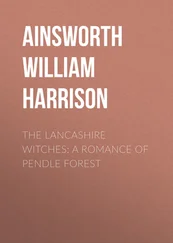W. Ainsworth - Rookwood
Здесь есть возможность читать онлайн «W. Ainsworth - Rookwood» весь текст электронной книги совершенно бесплатно (целиком полную версию без сокращений). В некоторых случаях можно слушать аудио, скачать через торрент в формате fb2 и присутствует краткое содержание. Жанр: Старинная литература, на русском языке. Описание произведения, (предисловие) а так же отзывы посетителей доступны на портале библиотеки ЛибКат.
- Название:Rookwood
- Автор:
- Жанр:
- Год:неизвестен
- ISBN:нет данных
- Рейтинг книги:4 / 5. Голосов: 1
-
Избранное:Добавить в избранное
- Отзывы:
-
Ваша оценка:
- 80
- 1
- 2
- 3
- 4
- 5
Rookwood: краткое содержание, описание и аннотация
Предлагаем к чтению аннотацию, описание, краткое содержание или предисловие (зависит от того, что написал сам автор книги «Rookwood»). Если вы не нашли необходимую информацию о книге — напишите в комментариях, мы постараемся отыскать её.
Rookwood — читать онлайн бесплатно полную книгу (весь текст) целиком
Ниже представлен текст книги, разбитый по страницам. Система сохранения места последней прочитанной страницы, позволяет с удобством читать онлайн бесплатно книгу «Rookwood», без необходимости каждый раз заново искать на чём Вы остановились. Поставьте закладку, и сможете в любой момент перейти на страницу, на которой закончили чтение.
Интервал:
Закладка:
"Our orders are from the queen," returned the knight.
At this instant the low tolling of a muffled bell was heard.
"Ha!" exclaimed Luke; "some danger is at hand."
His heart smote him as he thought of Sybil, and he looked anxiously towards Eleanor.
Balthazar rushed into the room.
"Where is Sybil?" cried Luke. "Will she not come?"
"She will be here anon," answered the patrico.
"I will seek her myself, then," said Luke. "The door by which you entered is free."
"It is not free," replied Balthazar. "Remain where you are."
"Who will prevent my going forth?" demanded Luke, sternly.
"I will," said Barbara Lovel, as she suddenly appeared in the doorway. "You stir not, excepting at my pleasure. Where is the maiden?" continued she, looking around with a grim smile of satisfaction at the consternation produced by her appearance. "Ha! I see; she faints. Here is a cordial that shall revive her. Mrs. Mowbray, you are welcome to the gipsies' dwelling—you and your daughter. And you, Sir Luke Rockwood, I congratulate you upon your accession of dignity." Turning to the priest, who was evidently overwhelmed with confusion, she exclaimed, "And you, too, sir, think you I recognise you not? We have met ere this, at Rookwood. Know you not Barbara Lovel? Ha, ha! It is long since my poor dwelling has been so highly honoured. But I must not delay the remedy. Let her drink of this," said she, handing a phial to Mrs. Mowbray. "It will instantly restore her."
"It is poison!" cried Luke. "She shall not drink it."
"Poison!" reiterated Barbara. "Behold!" and she drank of the liquid. "I would not poison your bride," added she, turning to Luke.
"My bride!" echoed Luke.
"Ay, your bride," repeated Barbara.
Luke recoiled in amazement. Mrs. Mowbray almost felt inclined to believe she was a dreamer, so visionary did the whole scene appear. A dense crowd of witnesses stood at the entrance. Foremost amongst them was the sexton. Suddenly a shriek was heard, and the crowd opening to allow her passage, Sybil rushed forward.
| Contents |
"I am Sir Luke Rookwood."
CHAPTER VII
MRS. MOWBRAY
SYBIL'S sudden entrance filled the group that surrounded Miss Mowbray with new dismay. But she saw them not. Her soul seemed riveted by Eleanor, towards whom she rushed; and while her eye wandered over her beauty, she raised the braided hair from her brow, revealing the clear, polished forehead. Wonder, awe, devotion, pity, usurped the place of hatred. The fierce expression that had lit up her dark orbs was succeeded by tender commiseration. She looked an imploring appeal at Barbara.
"Ay, ay," returned the old gipsy, extending at the same time the phial; "I understand. Here is that will bring the blood once more into her pallid cheeks, and kindle the fire within her eyes. Give her of this."
The effect of the potion was almost instantaneous, amply attesting Barbara's skill in its concoction. Stifled respiration first proclaimed Eleanor's recovery. She opened her large and languid eyes; her bosom heaved almost to bursting; her pulses throbbed quickly and feverishly, and as the stimulant operated, the wild lustre of excitement blazed in her eyes.
Sybil took her hand to chafe it. The eyes of the two maidens met. They gazed upon each other steadfastly and in silence. Eleanor knew not whom she regarded, but she could not mistake that look of sympathy; she could not mistake the tremulous pressure of her hand; she felt the silent trickling tears. She returned the sympathising glance, and gazed with equal wonder upon the ministering fairy, for such she almost seemed, that knelt before her. As her looks wandered from the kindly glance of Sybil to the withered and inauspicious aspect of the gipsy queen, and shifted thence to the dusky figures of her attendants, filled with renewed apprehension, she exclaimed, "Who are these, and where am I?"
"You are in safety," replied Luke. "This is the ruined priory of St. Francis; and those strange personages are a horde of gipsies. You need fear no injury from them."
"My deliverer!" murmured Eleanor; when all at once the recollection that he had avowed himself a Rookwood, and the elder brother of Ranulph, flashed across her memory. "Gipsies! did you not say these people were gipsies? Your own attire is the same as theirs. You are not, cannot be the brother of Ranulph."
"I do not boast the same mother," returned Luke, proudly; "but my father was Sir Piers Rookwood, and I am his elder born."
He turned away. Dark thoughts swept across his brain. Maddened by the beauty of Eleanor, stung by her slights, and insensible to the silent agony of Sybil, who sought in vain to catch his eye, he thought of nothing but of revenge, and the accomplishment of his purposes. All within was a wild and fearful turmoil. His better principles were stifled by the promptings of evil. "Methinks," cried he, half aloud, "if the Tempter were near to offer that maiden to me, even at the peril of my soul's welfare, I could not resist it."
The Tempter was at hand. He is seldom absent on occasions like the present. The sexton stood beside his grandson. Luke started. He eyed Peter from head to foot, almost expecting to find the cloven foot, supposed to be proper to the fiend. Peter grinned in ghastly derision.
"Soh! you would summon hell to your aid; and lo! the devil is at your elbow. Well, she is yours."
"Make good your words," cried Luke, impatiently.
"Softly—softly," returned Peter. "Moderate yourself and your wishes shall be accomplished. Your own desires chime with those of others; nay, with those of Barbara. She would wed you to Miss Mowbray. You stare. But it is so. This is a cover for some deeper plot; no matter. It shall go hard, despite her cunning, if I foil her not at her own weapons. There is more mischief in that old woman's brain than was ever hatched within the crocodile's egg; yet she shall find her match. Do not thwart her; leave all to me. She is about it now," added he, noticing Barbara and Mrs. Mowbray in conference together. "Be patient—I will watch her." And he quitted his grandson for the purpose of scanning more closely the manœuvres of the old gipsy.
Barbara, meanwhile, had not remained inactive.
"You need fear no relapse in your daughter; I will answer for that," said the old gipsy to Mrs. Mowbray; "Sybil will tend her. Quit not the maiden's side," continued she, addressing her grandchild, adding, in a whisper, "Be cautious—alarm her not—mine eye will be upon you—drop not a word."
So saying, she shuffled to a little distance with Mrs. Mowbray, keeping Sybil in view, and watching every motion, as the panther watches the gambols of a fawn.
"Know you who speaks to you?" said the old crone, in the peculiar low and confidential tone assumed by her tribe to strangers. "Have you forgotten the name of Barbara Lovel?"
"I have no distinct remembrance of it," returned Mrs. Mowbray.
"Think again," said Barbara; "and though years are flown, you may perchance recall the black gipsy woman, who, when you were surrounded with gay gallants, with dancing plumes, perused your palm, and whispered in your ear the favoured suitor's name. Bide with me a moment, madam," said Barbara, seeing that Mrs. Mowbray shrank from the recollection thus conjured up; "I am old—very old; I have survived the shows of flattery, and being vested with a power over my people, am apt, perchance, to take too much upon myself with others." The old gipsy paused here, and then, assuming a more familiar tone, exclaimed, "The estates of Rookwood are ample—"
"Woman, what mean you?"
"They should have been yours, lady, and would have been, but for that marriage. You would have beseemed them bravely. Sir Reginald was wilful, and erased the daughter's name to substitute that of his son. Pity it is that so fair a creature as Miss Mowbray should lack the dower her beauty and her birth entitle her to expect. Pity that Ranulph Rookwood should lose his title, at the moment when he deemed it was dropping into his possession. Pity that those broad lands should pass away from you and your children, as they will do, if Ranulph and Eleanor are united."
Читать дальшеИнтервал:
Закладка:
Похожие книги на «Rookwood»
Представляем Вашему вниманию похожие книги на «Rookwood» списком для выбора. Мы отобрали схожую по названию и смыслу литературу в надежде предоставить читателям больше вариантов отыскать новые, интересные, ещё непрочитанные произведения.
Обсуждение, отзывы о книге «Rookwood» и просто собственные мнения читателей. Оставьте ваши комментарии, напишите, что Вы думаете о произведении, его смысле или главных героях. Укажите что конкретно понравилось, а что нет, и почему Вы так считаете.












